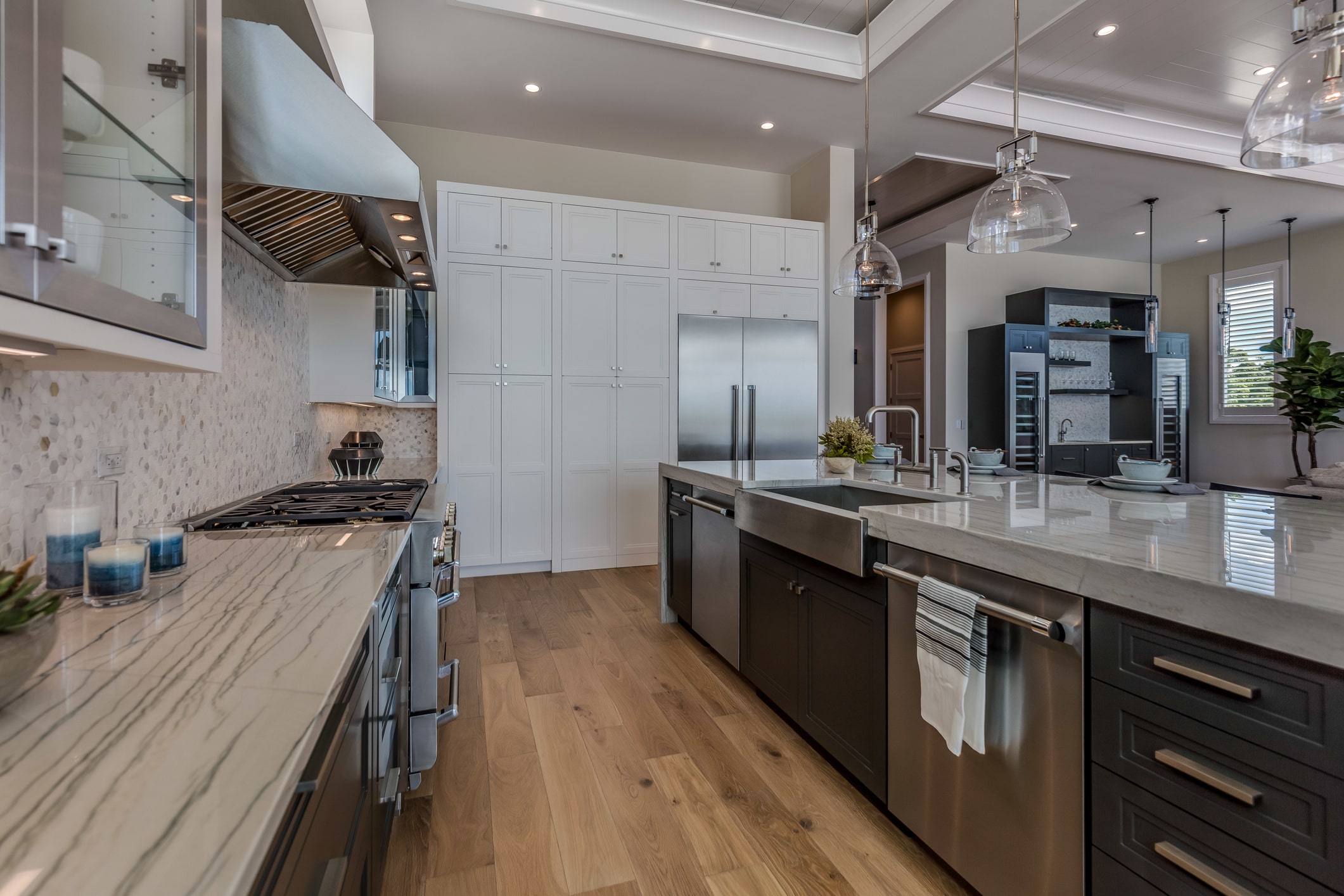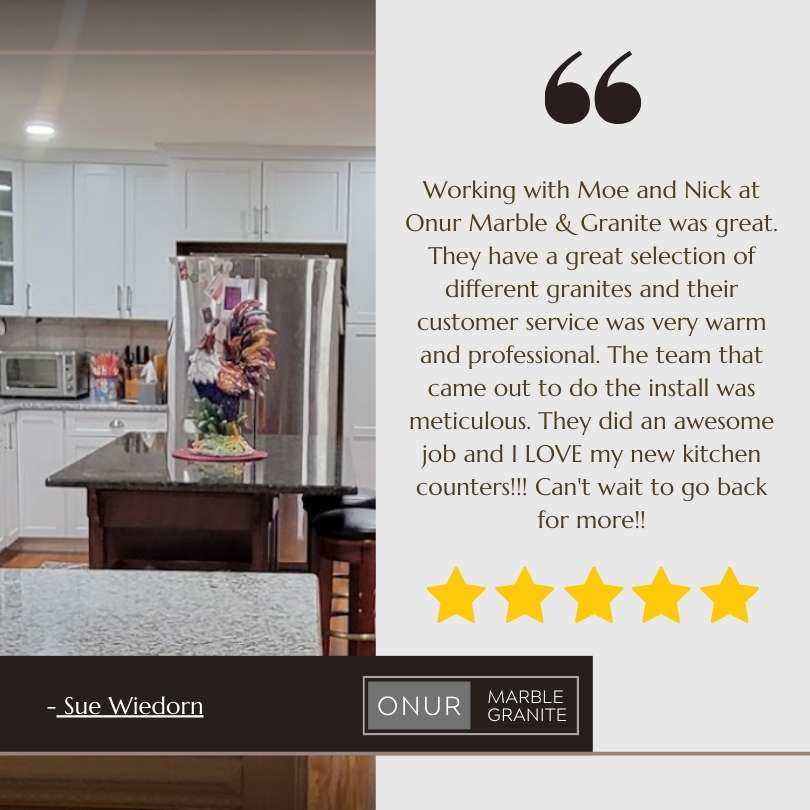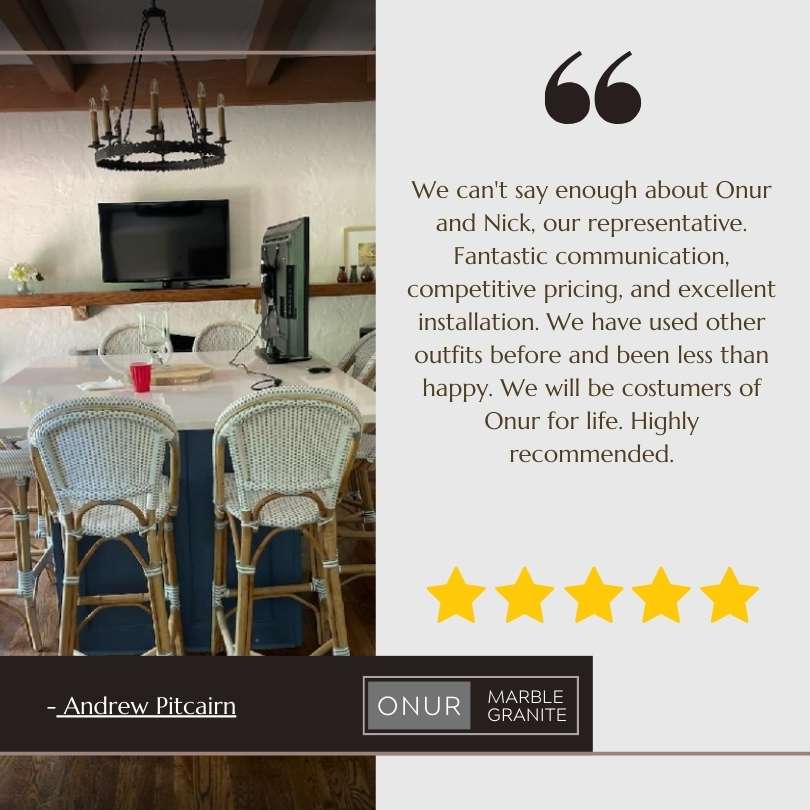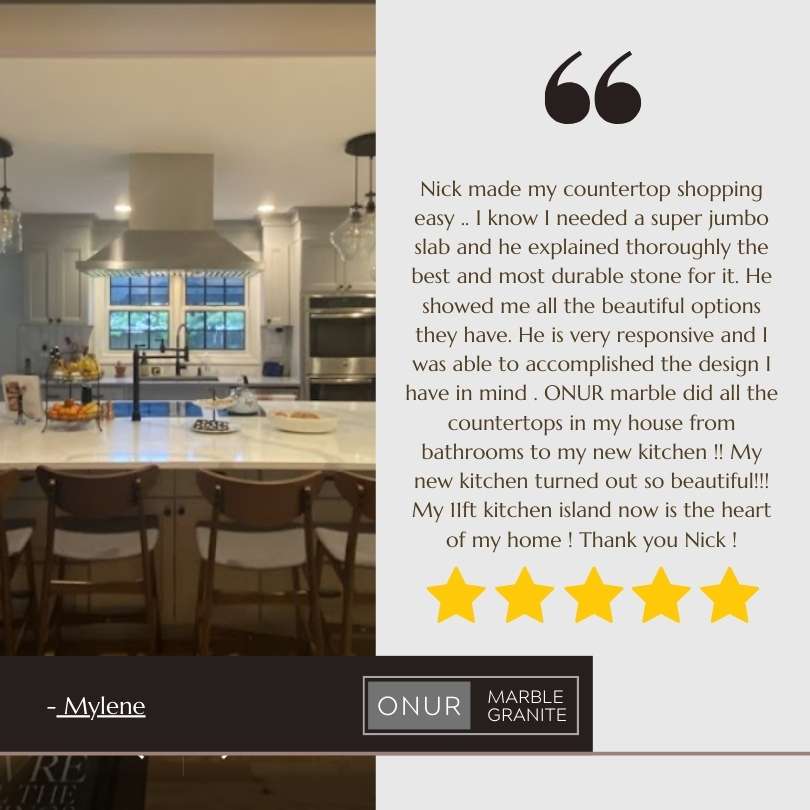Soapstone countertops have gained significant popularity in recent years due to their unique beauty and practicality. Unlike other countertop materials, soapstone offers a distinctive natural charm with its smooth, matte finish and rich, deep colors. This article provides a comprehensive guide on how to choose the perfect soapstone countertops for your kitchen. We will explore various factors to consider, discuss the pros and cons, delve into different soapstone varieties, and address essential maintenance and durability aspects. Additionally, we will compare soapstone countertops with other materials, discuss cost considerations, and provide valuable tips for finding reputable suppliers and installation professionals. Whether you are renovating your kitchen or building a new one, this guide will assist you in making an informed decision about integrating soapstone countertops into your home.
What are Soapstone Countertops?
Soapstone countertops are a beautiful and practical choice for your kitchen. Made from a natural stone called soapstone, these countertops offer a unique and timeless look that can enhance any kitchen design. Soapstone is a metamorphic rock composed mainly of mineral talc, which gives it a smooth and soft texture.
A Brief History of Soapstone Usage
Soapstone has been used for centuries due to its durability and heat-resistant properties. In fact, it has a rich history dating back to ancient civilizations. It was commonly used for carving sculptures, making cooking pots, and even constructing fireplaces. Today, soapstone is highly prized for its beauty and versatility in kitchen countertops.
Factors to Consider Before Choosing Soapstone CountertopsKitchen Style and Design
Before diving headfirst into soapstone countertops, take a moment to consider your kitchen’s overall style and design. Soapstone countertops can complement various design aesthetics, from rustic farmhouse to modern sleek. Determine whether the unique veining and color variations of soapstone will harmonize with your existing kitchen elements.
Lifestyle and Usage
Another crucial factor to consider is your lifestyle and how you use your kitchen. Soapstone countertops are resistant to heat and stains, making them ideal for avid cooks and busy households. However, soapstone is softer than other natural stones, so it may scratch more easily. If you have young children or frequently engage in heavy-duty cooking, you may want to consider how the durability of soapstone will handle your everyday activities.
Heat Resistance and Durability
One of the standout features of soapstone is its exceptional heat resistance. Whether you’re placing a hot pan directly on the surface or using it as a baking slab, soapstone can withstand high temperatures without damage. Additionally, soapstone is naturally less porous than other countertop materials, making it resistant to stains and bacterial growth. However, keep in mind that soapstone can develop a patina over time, which some people find adds character, while others prefer to maintain the original look through regular maintenance.
Pros and Cons of Soapstone Countertops
Advantages of Soapstone Countertops
Soapstone countertops have several advantages that make them a popular choice among homeowners. Besides their heat resistance and durability, soapstone is also non-porous, meaning it won’t absorb liquids or stains easily. It is also relatively low-maintenance, requiring only periodic oiling to enhance its natural beauty. Additionally, soapstone has a luxurious and timeless appearance that can elevate the aesthetic of any kitchen.
Disadvantages of Soapstone Countertops
While soapstone offers numerous benefits, it’s important to consider the potential downsides as well. As mentioned earlier, soapstone can scratch more easily than other stone countertops. However, many homeowners view these scratches as part of the stone’s natural patina and embrace the weathered look. Additionally, soapstone is more susceptible to chipping and cracking, so caution should be exercised to avoid heavy impacts.
Selecting the Right Soapstone Variety for Your Kitchen
Different Types of Soapstone
There are different varieties of soapstone available, each with its unique characteristics and color variations. Some popular varieties include Brazilian, Indian, and American soapstone. Brazilian soapstone tends to have a darker, rich black color and a relatively smoother texture. Indian soapstone often features shades of green and gray with striking veining. American soapstone, known for its warm and soft appearance, ranges in colors from light gray to charcoal.
Characteristics of Various Soapstone Varieties
When selecting a soapstone variety, consider the color, veining, and hardness that will best suit your preferences and kitchen style. Brazilian soapstone, for instance, showcases elegant beauty and is less prone to scratching. Indian soapstone exhibits a variety of unique and eye-catching patterns, while American soapstone offers a classic and timeless look. Take the time to explore and select the soapstone variety that resonates with your personal taste and complements your kitchen design.
Understanding the maintenance and durability of soapstone countertops
Caring for soapstone countertops
Taking care of your soapstone countertops is as easy as pie (or a delicious slice of soapstone countertop, if that’s your thing). Soapstone is a low-maintenance material that doesn’t require any fancy products or elaborate cleaning routines. All you need is a mild soap and water. No need to go on a shopping spree for expensive cleaners that promise miracles but never deliver.
Just wipe down your soapstone countertop with a damp cloth or sponge and a little bit of soap, and you’re good to go. However, make sure to avoid harsh chemicals or abrasive scrubbers, as they can damage the stone’s surface. No one wants a countertop with battle scars, right?
Common issues and how to address them
While soapstone is generally a sturdy rock that can withstand the test of time, it’s not completely indestructible. Like all things in life, it may encounter a few bumps and scratches along the way. But fear not, my friend! There are solutions to these common issues.
For minor scratches, a little bit of sanding with a fine-grit sandpaper can do the trick. Just remember to sand in the direction of the grain to avoid creating an eyesore. If your countertop develops deeper scratches or stains that won’t budge, don’t hesitate to call in the professionals. They have the magic touch (and the right tools) to restore your countertop to its former glory.
Comparing soapstone countertops with other materials
Soapstone vs. granite countertops
Soapstone and granite are like two siblings with different personalities. While granite is all about flashy patterns and bold colors, soapstone exudes a quiet elegance. So, if you’re looking for a countertop that’s sleek, sophisticated, and doesn’t need constant attention, soapstone might be your soulmate.
Unlike granite, soapstone is non-porous, which means it won’t soak up spills or stains. So, no need to worry about that red wine mishap during your next dinner party. Plus, soapstone is heat-resistant, so you can place your hot pots and pans directly on the surface without any hassle. It’s like having a bodyguard for your countertop!
Soapstone vs. quartz countertops
Ah, the eternal battle between natural beauty and engineered perfection. Quartz countertops are known for their durability, low maintenance, and wide range of colors and patterns. But let’s not forget about soapstone’s unique charm.
While soapstone may not have the same level of durability as quartz, it makes up for it with its distinctive veining and smooth feel. If you’re a fan of the natural, organic look, soapstone is the way to go. Plus, it’s resistant to acids, so you won’t have to worry about your lemon juice or vinegar wreaking havoc on your countertop.
Cost considerations and budgeting for soapstone countertops
Factors influencing the cost of soapstone countertops
Now, let’s talk about the moolah (aka money). The cost of soapstone countertops can vary depending on a few factors. The size of your countertop, the thickness of the slab, and any additional features or customization you want can all impact the price.
The region you live in and where you source your soapstone from can also affect the cost. So, it’s a good idea to do some shopping around and compare prices to find the best deal. Remember, though, that quality is key! Don’t compromise on the quality of the stone just to save a few bucks. You’ll be looking at your countertop every day, so make sure it’s worth it.
Setting a budget for your soapstone countertop project
Setting a budget for your soapstone countertop project is like embarking on a financial journey. Start by determining how much you’re willing to spend and what you expect from your countertop. Will it be the star of your kitchen, or just a supporting actor?
Once you have a budget in mind, stick to it like glue (or, you know, like super-strong adhesive). Be mindful of any additional costs that might pop up, such as installation or sealing fees. And hey, if your budget doesn’t allow for a full soapstone countertop, you can always get creative and use soapstone as an accent or for a smaller area.
Finding reputable suppliers and installation professionals for soapstone countertops
Researching and selecting reliable suppliers
Finding the perfect soapstone supplier is like finding a unicorn. It may seem impossible, but with a little bit of research and some patience, you’ll uncover the hidden gems. Start by asking for recommendations from friends, family, or even your friendly neighborhood interior designer.
Once you have a list of potential suppliers, dig deeper! Check out their websites, read reviews, and see if they have any certifications or industry affiliations. Reach out to them, ask questions, and get a feel for their expertise and customer service. Remember, you’re not just buying soapstone countertops, you’re buying an experience.
Choosing experienced professionals for installation
Installing soapstone countertops is like putting together a puzzle. Except, you know, with heavy slabs of stone. It’s not a DIY project for the faint of heart. That’s why it’s essential to choose installation professionals who have experience and know what they’re doing.
Ask your soapstone supplier if they offer installation services or if they can recommend someone. Take a look at the installation team’s portfolio and see if their previous work aligns with your vision. And don’t forget to ask about warranties and guarantees. You want your soapstone countertops to be in good hands, after all.In conclusion, choosing soapstone countertops for your kitchen is a decision that combines both aesthetics and functionality. With its timeless appeal, durability, and heat resistance, soapstone can be an excellent choice for homeowners seeking a unique and low-maintenance countertop option. By considering various factors such as kitchen style, lifestyle, and budget, you can select the right soapstone variety that fits your needs. Regular care and maintenance will ensure the longevity and beauty of your soapstone countertops. Remember to compare soapstone with other materials and seek reputable suppliers and installation professionals for a successful project. With this comprehensive guide, you are now equipped to make an informed choice and enjoy the beauty and elegance of soapstone countertops in your kitchen for years to come.
FAQ
Q: Are soapstone countertops prone to scratching?
A: Soapstone is a relatively soft material compared to other countertop options. While it can develop scratches over time, many homeowners consider these scratches to add character and charm to the countertop. Additionally, minor scratches can often be easily repaired with sanding and applying mineral oil.
Q: Do soapstone countertops require regular sealing?
A: Unlike granite or marble, soapstone countertops do not require regular sealing. However, applying mineral oil periodically can help enhance the natural color and maintain the smoothness of the surface. It is recommended to apply mineral oil every few months or as needed.
Q: Can soapstone countertops withstand high heat?
A: Yes, one of the significant advantages of soapstone countertops is their ability to withstand high heat. Soapstone has excellent heat resistance properties, making it ideal for placing hot pots and pans directly on the surface without causing any damage. This feature makes soapstone a popular choice for avid cooks and bakers.
Q: How does the cost of soapstone countertops compare to other materials?
A: The cost of soapstone countertops can vary depending on factors such as the type of soapstone, thickness, and location. Generally, soapstone falls within the mid to high price range compared to other materials like granite or quartz. While it may require a higher initial investment, many homeowners find the unique beauty and durability of soapstone well worth the cost.








